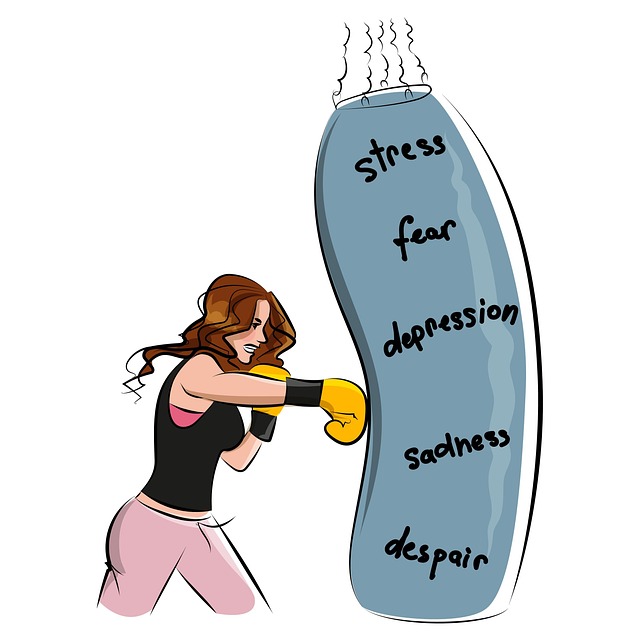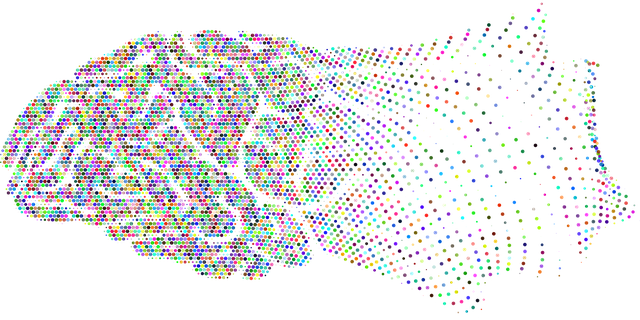The media's portrayal of mental health significantly shapes societal perceptions and influences public responses towards those struggling with conditions like postpartum depression (PPD). Accurate and empathetic representations, such as those offered by Longmont Postpartum Depression Therapy, can reduce stigma and promote help-seeking behaviors. However, negative stereotypes in media narratives may perpetuate fear and misunderstanding. Effective media representation normalizes mental health conversations, educates audiences, and encourages early intervention. By integrating emotional intelligence and conflict resolution techniques, media can empower individuals to develop coping strategies, build support systems, and cultivate resilience, as seen in Longmont Postpartum Depression Therapy's tailored interventions for new mothers with PPD.
Mental illness representation in media plays a pivotal role in shaping societal perceptions about mental health. This article delves into the profound impact of media portrayal on public understanding, with a specific focus on postpartum depression. We explore the current state of media depiction and highlight how these representations influence social attitudes. Subsequently, we present effective strategies to enhance positive mental illness representation, supported by a case study of Longmont Postpartum Depression Therapy—a pioneering initiative demonstrating the power of media and community collaboration in promoting mental wellness.
- Understanding the Impact of Media Portrayal on Mental Health Perception
- The Current State: How Media Often Depicts Postpartum Depression
- Effective Strategies to Enhance Positive Mental Illness Representation
- Longmont Postpartum Depression Therapy: A Case Study for Change in Media and Community Support
Understanding the Impact of Media Portrayal on Mental Health Perception

The media has a profound influence on shaping societal perceptions and understanding of mental health. The way mental illnesses are portrayed in films, television shows, and news articles can significantly impact how the public views and treats individuals struggling with these conditions. Accurate and empathetic representation can foster compassion and reduce stigma, encouraging those in need to seek Longmont Postpartum Depression Therapy or other forms of support. Conversely, negative stereotypes and misleading depictions may perpetuate fear, misunderstanding, and further isolation for affected individuals.
For instance, portraying mental illness as a character flaw or an occasional ‘madness’ rather than a treatable medical condition can hinder progress in mental health awareness. On the other hand, media platforms can also be powerful tools to educate audiences about specific disorders, their symptoms, and available treatment options. By showcasing real-life stories of recovery and resilience, mass media has the potential to normalize conversations around mental health, encouraging open dialogue and early intervention—crucial aspects in addressing issues like postpartum depression. Moreover, integrating conflict resolution techniques and emotional intelligence into these narratives can further promote healthy coping mechanisms and accurate risk assessment for mental health professionals.
The Current State: How Media Often Depicts Postpartum Depression

In the current media landscape, postpartum depression (PPD) is often portrayed as a fleeting emotional low that can be easily overcome with minimal support. This depiction not only perpetuates harmful stereotypes but also overlooks the severity and complexity of this mental health condition. Many media representations fail to capture the relentless nature of PPD, where symptoms can last for months or even years, profoundly impacting a new mother’s ability to care for herself and her child.
Longmont Postpartum Depression Therapy has become an increasingly vital resource for women struggling with this hidden battle. Empathy-building strategies within therapy sessions play a crucial role in mental health awareness by normalizing conversations about PPD and reducing the stigma associated with mental illness. Through tailored interventions, therapists help mothers develop coping mechanisms, strengthen support systems, and cultivate resilience, ultimately empowering them to navigate their journey with dignity and understanding.
Effective Strategies to Enhance Positive Mental Illness Representation

Media representation plays a pivotal role in shaping societal perceptions about mental health. To challenge negative stereotypes and promote understanding, there is a growing need for authentic and diverse portrayals of mental illness. One effective strategy is to include characters with genuine experiences, allowing audiences to connect and gain insights into their struggles and triumphs. Collaboration with mental health experts, such as therapists specializing in Longmont Postpartum Depression Therapy, can ensure accuracy and offer valuable perspectives.
Additionally, incorporating compassion cultivation practices, resilience-building narratives, and confidence-boosting themes can humanize characters and convey hope. By showcasing the journey of recovery and personal growth, media platforms can encourage viewers to seek help or support loved ones facing mental health challenges. These strategies contribute to a more empathetic and supportive societal atmosphere, fostering better care and understanding for those navigating mental illness.
Longmont Postpartum Depression Therapy: A Case Study for Change in Media and Community Support

In recent years, the representation of mental health issues, particularly postpartum depression (PPD), in media has been a subject of intense debate. The case of Longmont Postpartum Depression Therapy offers a compelling example of how community support and innovative treatment approaches can challenge societal norms and provide hope for those suffering from PPD. This program focuses on delivering specialized therapy services tailored to the unique needs of new mothers, addressing the severe depression that often goes undiagnosed or untreated in this demographic.
By integrating Crisis Intervention Guidance and effective Communication Strategies, Longmont Postpartum Depression Therapy ensures a supportive environment where mothers can openly discuss their struggles. Additionally, their comprehensive Risk Assessment for Mental Health Professionals guides treatment plans, ensuring personalized care that considers each individual’s specific circumstances. This holistic approach has not only proven successful in managing PPD but also serves as a powerful narrative tool to educate the public and dispel stereotypes associated with mental illness.
Media portrayal plays a pivotal role in shaping public perception about mental health. The current state of representation, as evidenced by frequent missteps in depicting postpartum depression, highlights the need for more accurate and nuanced storytelling. By adopting effective strategies, such as diverse and authentic narratives, media can foster understanding and reduce stigma. The case study of Longmont Postpartum Depression Therapy demonstrates that when communities come together to challenge negative stereotypes, positive change can occur, leading to better support systems and improved mental health outcomes. It is crucial to continue these efforts to ensure media serves as a powerful tool for enhancing mental illness representation and promoting overall well-being.














